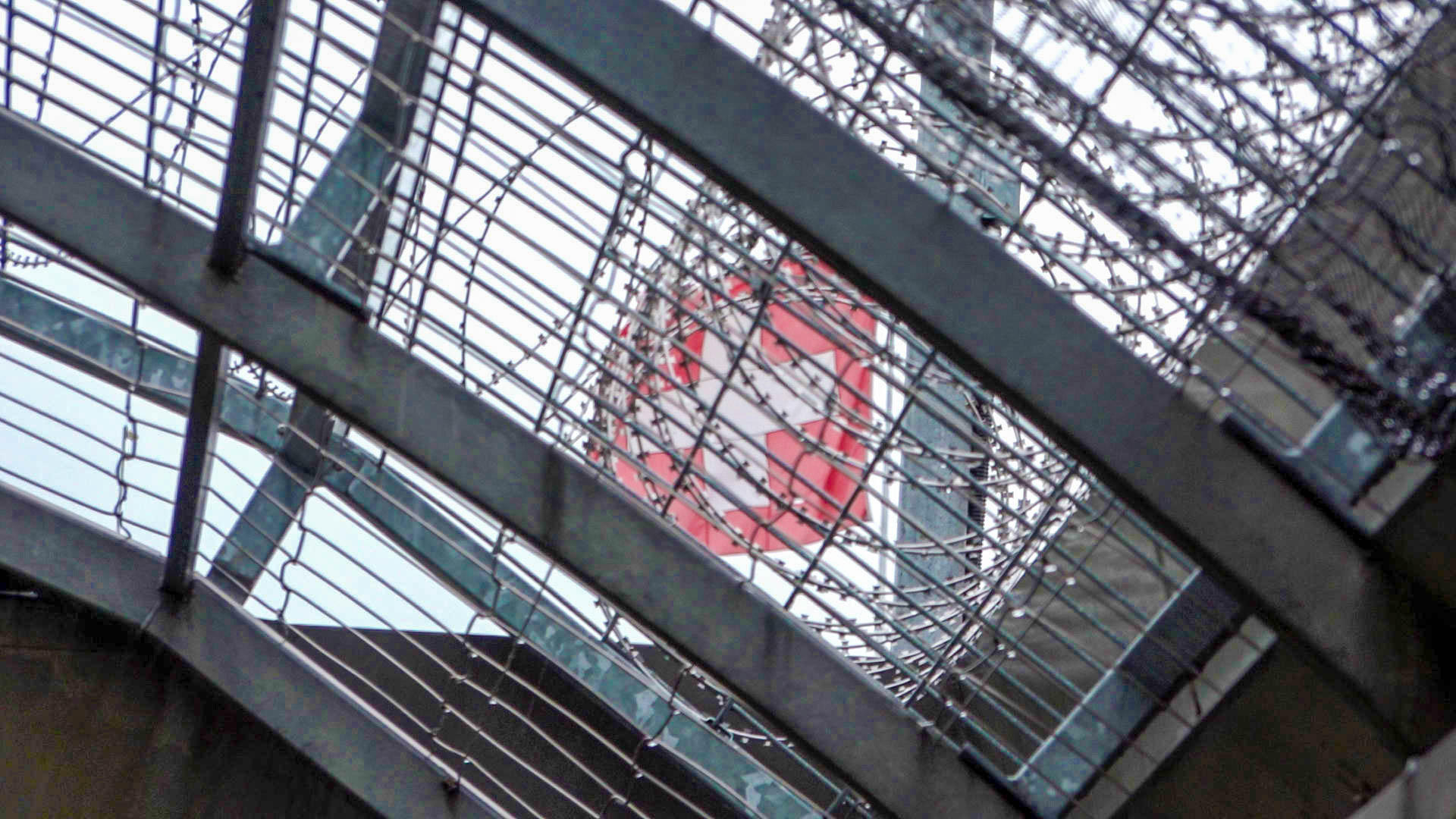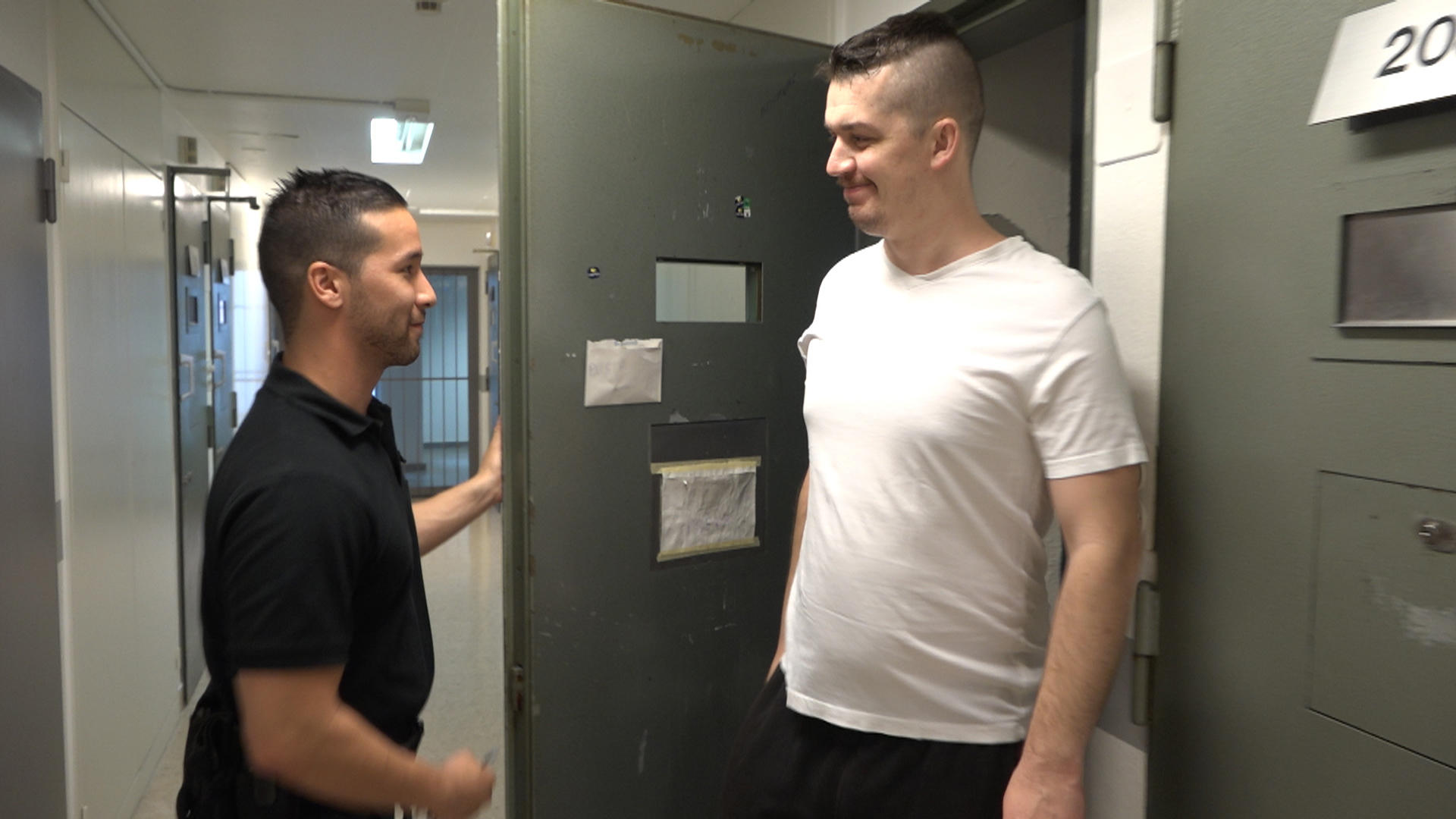
The imam who guides Muslims in Swiss prisons

An imam has been counselling Muslim prisoners for nearly 25 years in several Swiss prisons, long before Islamic terror and radicalisation became widespread issues. Today, they are frequent topics of conversation in his sessions with inmates.
One of the prisons where he works is located in the centre of the Swiss capital city Bern and can accommodate 126 inmates. It is currently at capacity. Most prisoners are awaiting trial, serving a sentence or in detention pending deportation. The women are on the first floor, the men are on the second through fifth floors. Those who stand accused of having committed terrorist offences are also regularly imprisoned here.
Four out of five prisoners are foreigners, and almost a third are Muslim. For the most part, they are able to practice their faith in prison.
“In general we respect the prayer times,” says Monika Kummer, the prison director, who greets visitors and inmates alike with a kind word or smile. “But in urgent situations, for example for interrogations, they have to interrupt prayer.” She points out that such interruptions lie within the guidelines of the faith.
To avoid issues, pork is never on the prison menu, not even for non-Muslims. Today’s lunch is lukewarm fish sticks, wheat grains and vegetables with little sauce or seasoning.
Right now, 31 Muslim prisoners are observing Ramadan. Lunch, dinner and breakfast for the following day are all brought to the cell at the same time, in the early evening. Some prisoners wait until nightfall to eat, while others hang cloths in the window to give nightfall a jump-start.
‘I’ll never do it again’
Irhad* is observing Ramadan, too – for the first time in his life in prison. The Bosnian lives in Germany but broke the law while in Switzerland. He does not say why, just that he “got in with the wrong crowd”. Life in prison is hard for him, especially being separated from his family. His days involve sleeping, reading, and praying as well as monotonous work for a Swiss watch company sticking dozens of labels on packaging boxes in his cell.
Grateful for any distraction, every Tuesday afternoon Irhad makes use of the prison’s Muslim pastoral counselling service with Mustafa Memeti, a Swiss imam with Albanian roots.
“I can tell Memeti everything. When I talk to him, I feel good and can sleep better afterwards,” says the young Muslim who appreciates hearing from a theologian who shares his faith.
Irhad is quick to point out his disgust for terrorists. He saw on television that terrorists had prayed before launching a recent attack on a concert in Manchester, England. But he believes that “men who kill innocent people and even children attending a concert are not Muslims”.
Memeti replies that the terrorists have psychological problems.
“They misinterpret their faith, cannot distinguish between good and bad and always blame others,” he says. The iman tells Irhad that in his difficult situation, “it is very important to question oneself, to think positively and to believe in a future with a job and a family”.
The elderly Muslim cleric tells the young inmate to be aware of the lesson he has learned in prison and what he can take from it.
“I’ll never do it again,” Irhad promises. “As soon as I get out, I’m going straight to my wife and children.”

More
Prison imam fights Muslim radicalisation
Emotional nurturing
Imam Memeti studied theology in various Arabic countries and has lived in Switzerland since 1993. For 24 years, he has been coming to Bern’s prison one afternoon a week to support Muslim inmates who have no contacts or freedom and few prospects.
“Our authority is limited,” he admits. “We may not interfere in the legal process. But we can nurture people emotionally by dissuading them from negative thoughts and motivating them to take their fate back into their own hands”.
Bad thoughts are often based on the feeling of not being accepted, explains Memeti. This could lead to radicalisation.
Mustafa Memeti has also been part of the multicultural pastoral counselling team for some years at another Swiss prison called ThorbergExternal link, where 169 prisoners are currently incarcerated and some are serving long-term sentences. There, more than 80% of prisoners are foreigners, and around 40% are Muslims. Currently, no one is serving time for terrorism-related offences at Thorberg.
Memeti’s weekly pastoral counselling service is used by five to six prisoners on average and not always by the same individuals, says law enforcement expert Christoph Schmutz. They have had good experiences with the Muslim pastoral counsellor. Memeti is among the more liberal imams who seek a dialogue with other religions.
The danger of radicalisation has received great attention at Thorberg, not only with regard to Islam. In case of signs of radicalisation, the institution gets specialists involved, says Schmutz.
Sometimes he holds pastoral counselling sessions in small groups. “This can be emotionally helpful because the prisoners realise that they are not all alone in a difficult situation,” he says.
Participation in Muslim pastoral counselling is voluntary and not utilised by all Muslims in the prison. But if a prisoner suddenly changes demeanor, no longer listens to music, no longer watches TV, grows out his beard or makes bizarre utterances, Memeti gets involved.
“He can make a difference. I appreciate his presence, his professional competence and his openness”, says prison director Kummer. She rules out the notion that the imam himself could bring radical ideas into the prison, as has happened in other institutions. Memeti is known to the public as a moderate Muslim theologian who believes that the law takes priority over religious views.
Members of the prison staff are also trained to respect freedom of religion and the imam’s work, although none of them practice Islam themselves.
“There are training courses on topics such as radicalisation and jihadism,” says Kummer. “Our people acquire this knowledge because they are on the frontline and the first to recognise when someone is acting conspicuously”.
The prison’s administration has appreciated Memeti since long before Islamic-motivated terror became a threat, but Kummer says she and her staff “are glad to be able to count on his support during this time”.
(*The full name is known to the editorial department)
Translated from German

In compliance with the JTI standards
More: SWI swissinfo.ch certified by the Journalism Trust Initiative




























You can find an overview of ongoing debates with our journalists here . Please join us!
If you want to start a conversation about a topic raised in this article or want to report factual errors, email us at english@swissinfo.ch.